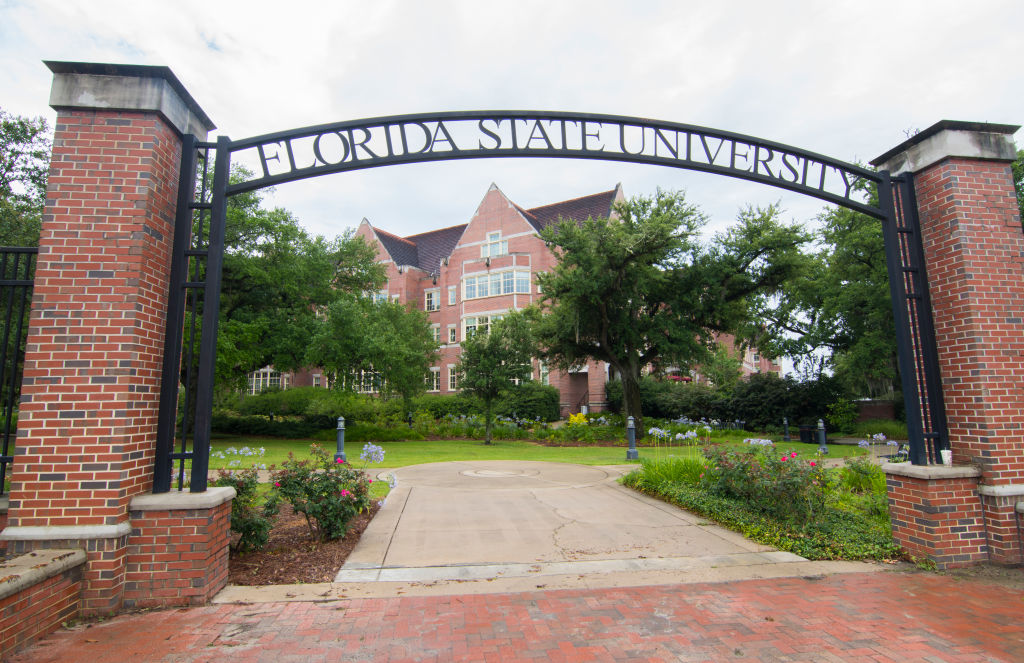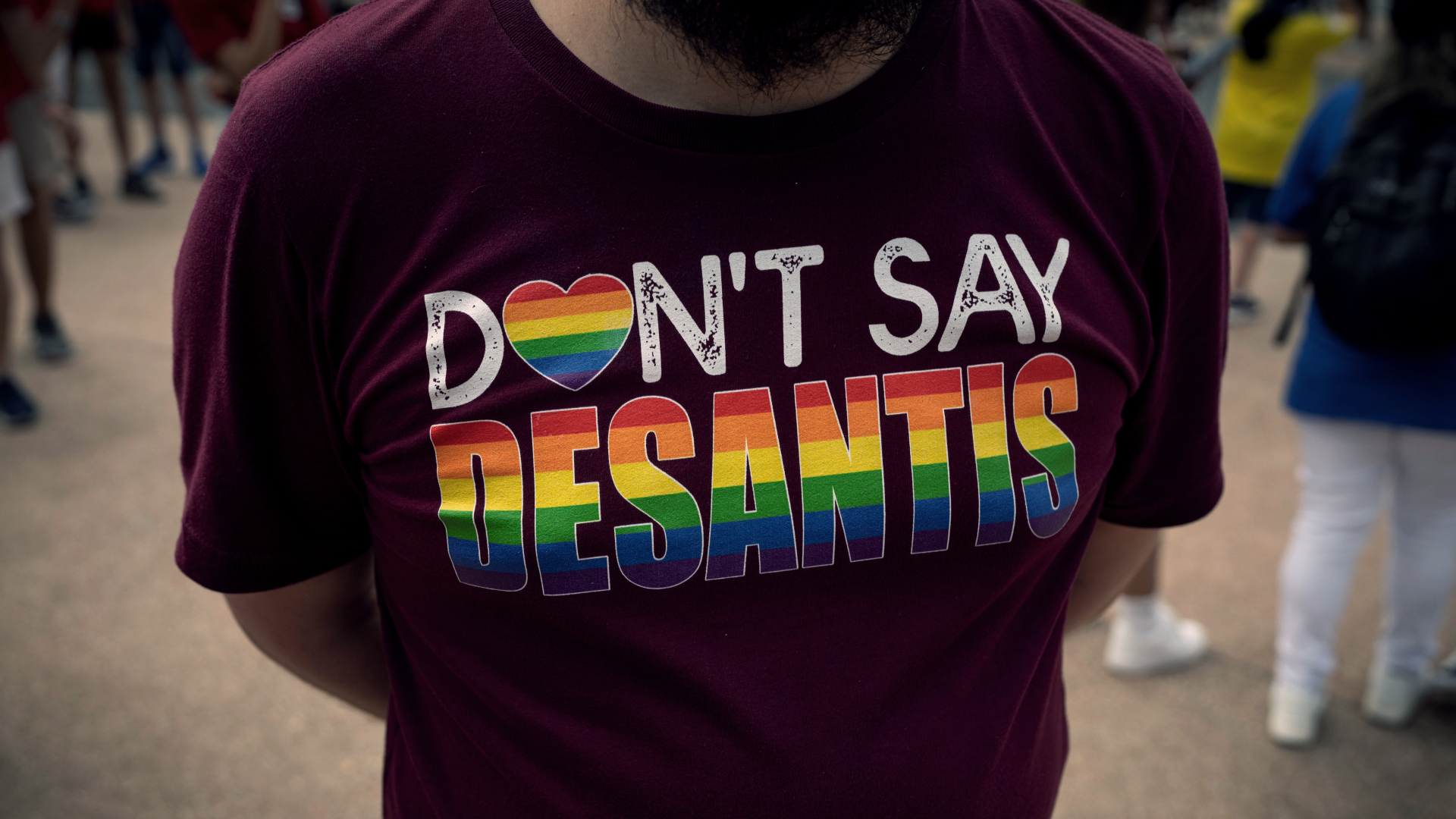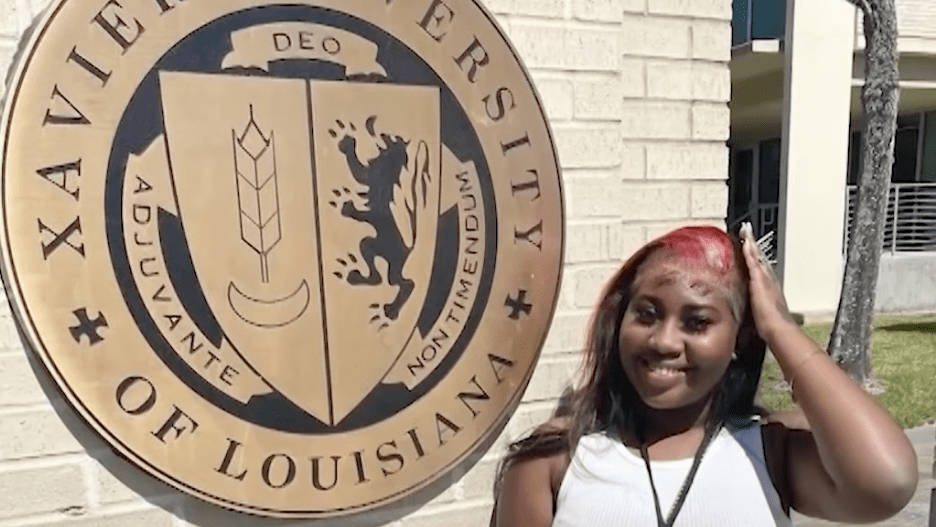Florida's DeSantis-backed college admissions test has some questioning its merits
The new test has been met with skepticism by the SAT and the ACT


A free daily email with the biggest news stories of the day – and the best features from TheWeek.com
You are now subscribed
Your newsletter sign-up was successful
For decades, the ACT and SAT have stood as the predominant college admissions tests in the United States. In Florida, though, a new alternative is being introduced — a conservative-backed exam rooted in Christian values called the Classic Learning Test, or CLT.
Developed in 2015, the CLT describes itself as a test that "exists to reconnect knowledge and virtue by providing meaningful assessments and connections to seekers of truth, goodness and beauty." Offered from 3rd through 12th grade, the CLT has been widely praised by Florida Gov. Ron DeSantis (R). This is likely why Florida's state university system board recently approved the exam for college admissions, the first state to do so.
The CLT is already accepted by more than 200 universities nationwide, and the state said in a press release that its decision to accept the test provides students "an opportunity to showcase their academic potential and [pave] the path to higher education." However, the test, which is based on a different model of education than the ACT and SAT, has some questioning its merits, especially given the recent controversies seen in Florida's educational system.
The Week
Escape your echo chamber. Get the facts behind the news, plus analysis from multiple perspectives.

Sign up for The Week's Free Newsletters
From our morning news briefing to a weekly Good News Newsletter, get the best of The Week delivered directly to your inbox.
From our morning news briefing to a weekly Good News Newsletter, get the best of The Week delivered directly to your inbox.
What does the CLT teach?
Unlike its competitors, the CLT is based on a classical education model. It "trains students in language arts and mathematics as the fundamentals of all other knowledge," according to a test pamphlet, and "focuses on perennial questions about human nature, the physical world, lessons from history and logical reasoning." The pamphlet wrote that other college tests relied on "current trends in American culture and legislation," something the founder of the CLT, Jeremy Tate, is trying to change.
"We're measuring your ability to read the most important texts that have driven the development of history and culture for thousands of years," Tate told NPR. He added that it was important for students to learn "human nature, logical reasoning and lessons from history." As a result, most of the CLT focuses on "canonical works from Western civilization, with an emphasis on Greek, Roman and early Christian thought," The New York Times reported, adding that "memorization, logic and debate are considered important skills."
While the CLT is not directly connected to a religious organization, its board of directors includes "people affiliated with religious schools like Hillsdale College," NPR noted. The board also features prominent right-wing activists such as Mark Bauerlein, who has previously described himself as an "educational conservative." A sample test cited by the Times additionally noted the presence of "more religious thought, with passages from Thomas Aquinas; Jonathan Edwards, the Great Awakening preacher; and Teresa of Ávila, a 16th century saint."
Why is Florida's adoption of the CLT controversial?
The CLT's apparent conservative Christian roots have generated some concern among the ACT, SAT and others. These groups say the CLT may not provide a proper baseline exam for prospective college entrants because the test is typically targeted toward homeschooled and faith-based students.
A free daily email with the biggest news stories of the day – and the best features from TheWeek.com
"We do not, and have never, narrowly focused on any one particular intellectual tradition," ACT told the Times in a statement. ACT officials also told NPR that they were "uncertain how its test compares to the CLT" because there had not been a formal study comparing the two. These concerns were echoed by the College Board, which administers the SAT. The College Board said in a statement that while it "recognizes the role that the Classic Learning Test and other assessments can play in a diverse educational landscape," the CLT "has not published evidence of validity or predictiveness of college performance."
The College Board specifically cited concerns over the CLT's mathematics guidelines. The organization noted that 25% of math questions "were below high school grade level," and that the CLT didn't test on statistics at all. Tate also admitted to NPR that the CLT did not ask any questions that required a calculator.
Statewide promotion of the CLT "could be another way to further marginalize traditionally underrepresented voices, given its focus on Western ideals," Ja'Han Jones opined for MSNBC. These concerns were echoed by the Miami Herald, which noted that the test is based on "a historical focus on white, Western European and Judeo-Christian foundations."
As the controversy continues, the CLT has released a press report standing by its test. Tate also told the Times that his test had "made an effort to diversify the material by including more passages from African and South American writers."
Justin Klawans has worked as a staff writer at The Week since 2022. He began his career covering local news before joining Newsweek as a breaking news reporter, where he wrote about politics, national and global affairs, business, crime, sports, film, television and other news. Justin has also freelanced for outlets including Collider and United Press International.
-
 Should the EU and UK join Trump’s board of peace?
Should the EU and UK join Trump’s board of peace?Today's Big Question After rushing to praise the initiative European leaders are now alarmed
-
 Antonia Romeo and Whitehall’s women problem
Antonia Romeo and Whitehall’s women problemThe Explainer Before her appointment as cabinet secretary, commentators said hostile briefings and vetting concerns were evidence of ‘sexist, misogynistic culture’ in No. 10
-
 Local elections 2026: where are they and who is expected to win?
Local elections 2026: where are they and who is expected to win?The Explainer Labour is braced for heavy losses and U-turn on postponing some council elections hasn’t helped the party’s prospects
-
 Florida teachers can 'say gay' under settlement
Florida teachers can 'say gay' under settlementspeed read The state reached a settlement with challengers of the 2022 "Don't Say Gay" education law
-
 Florida educators face off with state officials over a teacher shortage
Florida educators face off with state officials over a teacher shortageSpeed Read As of mid-August, there were roughly 7,000 teaching vacancies across Florida, according to the state's teachers union. But the Florida Department of Education says differently.
-
 Florida schools' tug-of-war with AP Psychology
Florida schools' tug-of-war with AP PsychologyThe Explainer As the Florida school year starts, some districts remain unclear about AP Psychology's legality
-
 This Florida high schooler has been accepted into 72 colleges
This Florida high schooler has been accepted into 72 collegesSpeed Read
